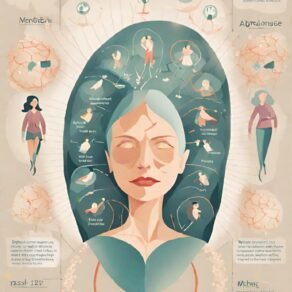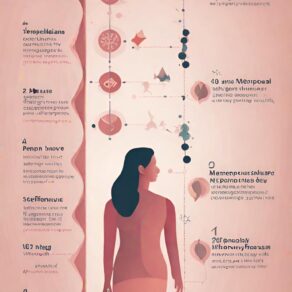Menopause age, influenced by genetics, lifestyle, and health, marks the end of reproductive years. Understanding its factors, variability, and implications is crucial for women navigating this natural transition.
Average Menopause Age:
- The average age of menopause is approximately 51, but it can range from the late 40s to early 60s.
- Factors such as race, ethnicity, and geographical location can influence the average age of within different populations.
Genetic Factors:
- Family history plays a significant role in determining climacteric age. Women tend to experience menopause around the same age as their mothers and sisters.
- Genetic variations in genes related to reproductive hormones, such as follicle-stimulating hormone (FSH) and estrogen receptors, can also influence age of menopausal onset.
Reproductive Factors:
- The age at which a woman starts menstruating (menarche) can affect her menopause age. Women who start menstruating at a younger age tend to experience menopause earlier.
- The number of pregnancies and live births a woman has had may also influence age of menopausal onset, with women who have had more pregnancies and births experiencing menopause at a later age.
Lifestyle Factors:
- Smoking has been linked to an earlier onset of menopause, with smokers experiencing menopause, on average, one to two years earlier than non-smokers.
- Body weight and BMI (Body Mass Index) can also impact age of menopausal onset, with both underweight and obese women experiencing climacteric at earlier ages compared to women of normal weight.
Medical Factors:
- Certain medical conditions and treatments, such as chemotherapy and radiation therapy for cancer, can induce premature menopause.
- Surgical removal of the ovaries (oophorectomy) also leads to immediate menopause regardless of age.
Psychological Factors:
- Psychological stress and emotional factors may influence menopausal age, although the exact mechanisms are not fully understood.
- Chronic stress and emotional trauma may contribute to hormonal imbalances that affect the timing of menopause.
Implications of menopausal age.:
- menopausal age can impact a woman’s health and well-being, including her risk of developing osteoporosis, cardiovascular disease, and cognitive decline.
- Early climacteric onset (before 45) heightens specific health risks, while later onset (after 55) presents unique implications.
Conclusion:
menopausal age is a complex phenomenon influenced by a combination of genetic, reproductive, lifestyle, and medical factors. While the average age of climacteric provides a general guideline, individual experiences may vary widely. Understanding factors influencing age of climacteric onset empowers women to make informed health decisions during this natural life transition.





